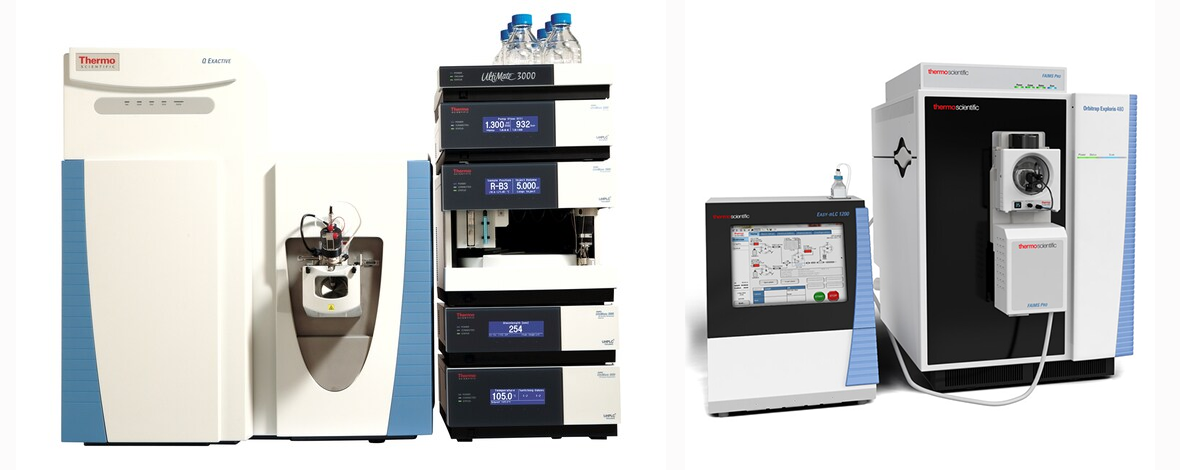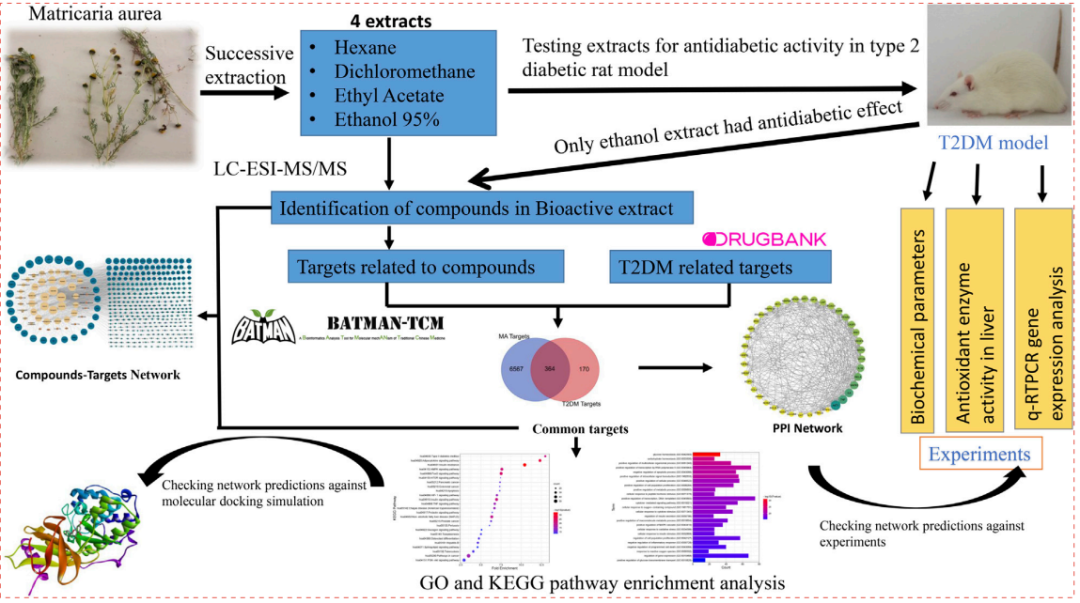LC-ESI-MS/MS Analysis Service
Liquid Chromatography-Electrospray Ionization Tandem Mass Spectrometry (LC-ESI-MS/MS) is a technique that combines the separation capabilities of liquid chromatography (LC) with the detection advantages of mass spectrometry (MS). As a front-end separation method, LC separates components of complex mixtures in sequence based on their partition coefficients between the stationary and mobile phases, achieving preliminary separation through timed elution. Electrospray ionization (ESI) serves as a "bridge" between LC and MS, converting neutral molecules in the liquid phase into charged ions detectable by the mass spectrometer, completing the critical ionization process. Tandem mass spectrometry (MS/MS) further selects ions generated by the first stage of MS, fragments them, and analyzes the fragments, providing richer fragment information and significantly enhancing the accuracy and sensitivity of qualitative and quantitative analyses.
The LC-ESI-MS/MS analysis service leverages the strengths of LC separation and MS detection to accurately detect trace components in complex samples and distinguish structurally similar compounds, enabling precise qualitative and quantitative analysis. Additionally, LC-ESI-MS/MS analysis service offers high throughput, high sensitivity, and a wide dynamic range, making it widely applicable in fields such as drug metabolism, environmental monitoring, food safety, and clinical research, providing robust support for scientific studies.
Analysis Workflow
The LC-ESI-MS/MS analysis service involves the following steps:
1. Sample Collection and Preparation
Samples are collected or extracted and then appropriately processed to remove impurities and prepare them for MS analysis. For instance, urine samples may require dilution and the addition of internal standards to enhance analytical accuracy.
2. LC Separation
Prepared samples are separated using LC. The LC system typically includes an injection system, a solvent delivery system, and a separation system. Once injected into the LC system, the sample components are separated under specific conditions (e.g., different mobile phases and chromatographic columns) based on their physical and chemical properties.
3. ESI
Components separated by LC are introduced to the mass spectrometer through the ESI interface, which converts the liquid-phase analytes into gas-phase ions. This process involves the transformation of the sample solution into charged microdroplets. These droplets are nebulized with the assistance of nitrogen gas and subjected to high temperatures to remove the solvent and ionize the sample.
4. MS Analysis
The ionized sample enters the mass analyzer, where ions are separated and detected based on their mass-to-charge ratios (m/z). Commonly used mass analyzers, such as triple quadrupole mass spectrometers or linear ion trap mass spectrometers, are capable of selecting specific ions for monitoring. By analyzing ion intensities, compounds can be quantified accurately.

www.thermofisher.cn
Figure 1. Liquid Chromatography Mass Spectrometer.
Services at MtoZ Biolabs
MtoZ Biolabs offers a range of advanced mass spectrometry systems featuring high resolution, stability, sensitivity, and rapid scanning capabilities. These systems provide cutting-edge technical support for researchers in biochemistry, biotechnology, and biopharmaceutical industries. Our services span the following core technical areas:
1. Proteomics Analysis
Proteomics analysis refers to the systematic identification and quantification of the complete set of proteins (proteome) in a biological system (cells, tissues, organs, biofluids, or organisms) at a specific point in time.
(1) Proteins from various sample types, including protein mixtures, SDS-PAGE bands, 2D gel spots, pull-down samples, and Co-IP samples, can be efficiently and accurately identified.
(2) A variety of protein quantification techniques are available, including Label-Free, iTRAQ, TMT, SILAC, 2D-DIGE, DIA, SWATH, relative quantification, semi-quantification, and absolute quantification.
(3) MS-based protein sequencing services are provided, including analysis of amino acid composition, N-terminal sequencing, C-terminal sequencing, and full-sequence analysis of proteins. For proteins with unknown theoretical sequences, de novo sequencing services are offered using advanced de novo sequencing methods.
(4) Comprehensive post-translational modification (PTM) characterization is achieved, providing researchers with identification of modifications such as phosphorylation/tyrosine phosphorylation, glycosylation, ubiquitination, acetylation, methylation, disulfide bonds, and SUMOylation. These analyses include determining whether modifications occur, the type of modifications, the specific amino acid sites, and their abundance.
2. Metabolomics
Metabolomics focuses on large-scale studies of small molecules (metabolites) within cells, biofluids, tissues, or organisms, collectively referred to as the metabolome.
(1) Non-Targeted Metabolomics: This approach compares the metabolomes (the complete set of metabolites in an organism) of control and experimental groups to identify differences. By mapping these differences to known metabolic pathways, researchers can identify regulatory enzymes and genes, contributing to studies of disease mechanisms and therapeutic agent efficacy. MtoZ Biolabs has established technical platforms for processing various sample types, such as plants, microbes, serum, urine, biofluids, exosomes, and cerebrospinal fluid.
(2) Targeted Metabolomics: As a critical component of metabolomics research, targeted metabolomics extends and refines comprehensive metabolome analysis. Compared to untargeted metabolomics, this approach offers stronger specificity, higher detection sensitivity, and greater quantification accuracy.
(3) Lipidomics: Lipidomics is the comprehensive and systematic analysis and identification of lipids and their interacting molecules in biological systems. This field aims to elucidate the relationships between lipid metabolism and physiological or pathological processes in cells, organs, and organisms. Utilizing advanced tandem mass spectrometers and analysis software, MtoZ Biolabs delivers customized lipidomics solutions with rapid and accurate results to assist clients in lipid metabolism research.
3. Biopharmaceutical Analysis
Biopharmaceutical analysis refers to the development of biopharmaceutical products through modern medical research methods combined with biological production technologies. These products primarily include proteins, peptides, antibodies, vaccines, and biological diagnostic reagents. MtoZ Biolabs utilizes high-resolution mass spectrometry technology to conduct rigorous and comprehensive research and analysis of proteins, covering: Primary Structure (Molecular weight, N-terminal sequencing, C-terminal sequencing, and peptide coverage analysis), Higher-Order Structure (Disulfide bond mapping and free cysteine detection), Charge Heterogeneity Analysis (Glycosylation site determination).
Service Advantages
1. Advanced Analytical Platforms
MtoZ Biolabs has established a sophisticated LC-ESI-MS/MS analysis service platform, ensuring reliable, rapid, and high-precision analytical services.
2. Transparent Pricing
Our pricing structure is transparent, with no hidden fees or additional fees.
3. High Data Quality
Deep data coverage and strict data quality control. The AI-driven bioinformatics platform integrates all proteomics data to provide customers with comprehensive data reporting.
4. Customized Research Solutions
MtoZ Biolabs can provide you with customized services to solve your unique research questions and experimental requirements.
Applications
1. Drug Metabolism Research
LC-ESI-MS/MS analysis service can enable qualitative analysis and structural identification of known compounds, as well as qualitative analysis of unknown components and their application in drug metabolism studies.
2. Environmental Analysis
LC-ESI-MS/MS analysis can detect and quantify pollutants in environmental samples, such as pesticides and industrial chemicals.
3. Food Safety Testing
LC-ESI-MS/MS technology is utilized for detecting residues of veterinary drugs and pesticides in food, identifying prohibited substances and harmful additives, and analyzing active ingredients in health supplements.
4. Clinical Diagnosis
LC-ESI-MS/MS analysis service can detect biomarkers, aiding in disease diagnosis, monitoring disease progression, and evaluating therapeutic outcomes.
5. Forensic Toxicology
LC-ESI-MS/MS technology is applied for qualitative and quantitative analysis of toxins and drugs, supporting forensic toxicology cases and drug abuse monitoring.
Case Study
1. Investigating the Anti-Diabetic Effects and Mechanisms of Chamomile Using Experimental Models, LC-ESI-MS/MS Chemical Analysis, and Systems Biology Approaches
Type II diabetes is a multifaceted metabolic syndrome closely associated with hyperglycemia, hyperlipidemia, and obesity. This study employed LC-MS/MS to identify the chemical constituents of chamomile, followed by animal models, enzyme activity assays, q-RT PCR gene expression analysis, network pharmacology, and molecular docking simulations. The findings demonstrated that the ethanol extract of chamomile possesses significant anti-diabetic activity, improves lipid abnormalities, mitigates insulin resistance, and enhances alanine transaminase and aspartate transaminase levels. Among them, LC-ESI-MS/MS analysis service was used to identify the chemical components of chamomile. The results showed that 62 compounds were identified in the extracted species of chamomile. These compounds included numerous flavonoids and their glycosides, coumarin derivatives, stilbene derivatives, and phenolic acids, providing critical direction and theoretical support for subsequent experimental studies. Thus, LC-MS/MS is poised to remain an indispensable analytical tool across diverse disciplines and industries, including chemistry, biology, medicine, and environmental sciences.

Yassin, I. et al. Front Pharmacol, 2022.
Figure 2. Research Roadmap of Chamomile's Anti Diabetes Effect and Mechanism.
MtoZ Biolabs, an integrated Chromatography and Mass Spectrometry (MS) Services Provider, provides advanced proteomics, metabolomics, and biopharmaceutical analysis services to researchers in biochemistry, biotechnology, and biopharmaceutical fields. Our ultimate aim is to provide more rapid, high-throughput, and cost-effective analysis, with exceptional data quality and minimal sample consumption. Free project evaluation, welcome to learn more details!
How to order?







